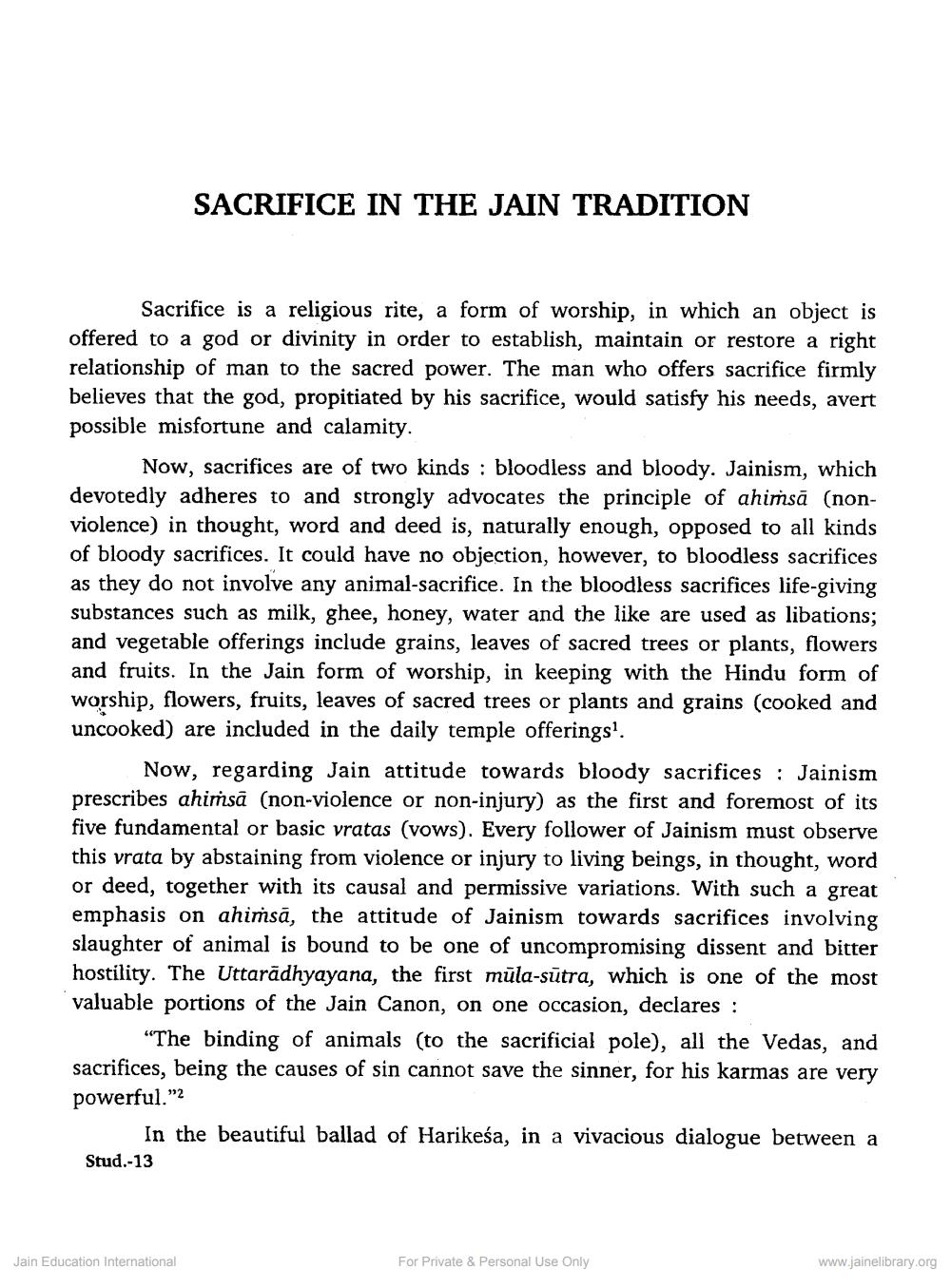________________ SACRIFICE IN THE JAIN TRADITION Sacrifice is a religious rite, a form of worship, in which an object is offered to a god or divinity in order to establish, maintain or restore a right relationship of man to the sacred power. The man who offers sacrifice firmly believes that the god, propitiated by his sacrifice, would satisfy his needs, avert possible misfortune and calamity. Now, sacrifices are of two kinds : bloodless and bloody. Jainism, which devotedly adheres to and strongly advocates the principle of ahimsa (nonviolence) in thought, word and deed is, naturally enough, opposed to all kinds of bloody sacrifices. It could have no objection, however, to bloodless sacrifices as they do not involve any animal-sacrifice. In the bloodless sacrifices life-giving substances such as milk, ghee, honey, water and the like are used as libations; and vegetable offerings include grains, leaves of sacred trees or plants, flowers and fruits. In the Jain form of worship, in keeping with the Hindu form of worship, flowers, fruits, leaves of sacred trees or plants and grains (cooked and uncooked) are included in the daily temple offerings. Now, regarding Jain attitude towards bloody sacrifices : Jainism prescribes ahimsa (non-violence or non-injury) as the first and foremost of its five fundamental or basic vratas (vows). Every follower of Jainism must observe this vrata by abstaining from violence or injury to living beings, in thought, word or deed, together with its causal and permissive variations. With such a great emphasis on ahimsa, the attitude of Jainism towards sacrifices involving slaughter of animal is bound to be one of uncompromising dissent and bitter hostility. The Uttaradhyayana, the first mula-sutra, which is one of the most valuable portions of the Jain Canon, on one occasion, declares : "The binding of animals (to the sacrificial pole), all the Vedas, and sacrifices, being the causes of sin cannot save the sinner, for his karmas are very powerful."? In the beautiful ballad of Harikesa, in a vivacious dialogue between a Stud.-13 Jain Education International For Private & Personal Use Only www.jainelibrary.org




